What Skin Analysis Equipment Reveals About Sun Damage
While traditional methods rely on visible signs like sunspots or fine lines, skin analysis equipment provides a more advanced, data-driven view—uncovering what the naked eye often misses.
In this article, we’ll explore how this technology works, why visual inspection alone is no longer enough, and what types of hidden sun damage it can reveal—from early pigment clusters to UV-induced dehydration and loss of elasticity.
1.How Skin Analysis Equipment Works
Skin analysis equipment blends cutting-edge imaging with intelligent algorithms to reveal what the naked eye simply cannot detect. Using multi-spectrum imaging—typically combining visible light, polarized light, and ultraviolet (UV) wavelengths—these systems capture high-resolution visuals of multiple skin layers. This allows for the detection of sun-induced damage that remains hidden under standard lighting conditions.
Beyond imaging, AI-driven skin analysis plays a central role. Instead of relying on subjective judgment, the system processes data through trained models to identify subtle signs of UV stress—such as early pigmentation shifts, underlying sun spots, and initial collagen degradation—well before they appear on the surface.
Core diagnostic features often include UV damage visualization, which reveals cumulative exposure effects; pigmentation mapping, highlighting melanin irregularities beneath the skin; and texture and pore analysis, useful for spotting sun-triggered roughness or early signs of elasticity loss. Some platforms also detect redness and inflammation, which can signal photo-sensitivity or underlying irritation.
What sets these tools apart is their ability to provide real-time, measurable insights. Users receive quantified results that not only support accurate diagnoses but also help guide personalized sun protection plans. In short, skin analysis equipment transforms hidden risks into actionable data—making it a vital ally in modern sun care and skin health management.
Learn more:
https://www.djmimoreme.com/what-does-a-skin-analyzer-do
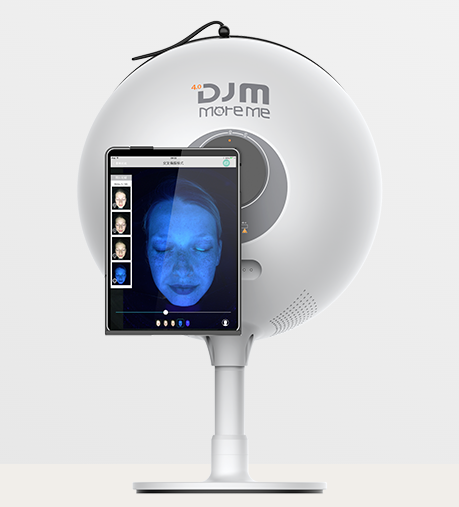
2.Why Visual Inspection Isn’t Enough
Healthy-looking skin doesn’t always mean damage-free skin. In fact, many effects of sun exposure—such as early pigmentation, inflammation, or collagen loss—often begin below the surface, long before they become visible to the naked eye.
While standard lighting and mirrors can help identify surface flaws, they fall short when it comes to detecting subtle, UV-induced changes occurring in the deeper layers of the skin. As a result, even experienced skincare professionals may unintentionally overlook the early signs of photodamage without the aid of specialized tools.
This is precisely where skin analysis device makes a difference. By using advanced technologies like UV imaging and polarized light, it goes beyond surface observation to uncover hidden sun damage—revealing early risks such as uneven melanin buildup, dehydration, and reduced elasticity that might otherwise go unnoticed.
With these deeper insights, prevention becomes not only possible but also practical. The earlier the damage is identified, the sooner personalized care—such as targeted sunscreens or antioxidant support—can be introduced. In this way, it’s not just about seeing more; it’s about taking action sooner to protect long-term skin health and delay visible aging.

3.What Hidden Effects Can Skin Analysis Equipment Reveal?
One of the most powerful features of modern skin analysis device is its ability to detect damage before it becomes visible. While the skin’s surface may look even and healthy, advanced imaging can reveal a range of underlying conditions that standard observation easily misses. This deeper look enables earlier, more targeted intervention—especially in the context of sun-related skin damage.
3.1 Pigment Clusters Below the Surface
To begin with, before dark spots or discoloration appear on the skin, melanin often starts to cluster beneath the surface. These early pigment accumulations are invisible to the naked eye but can be detected through advanced imaging. By identifying them early, professionals can intervene with targeted brightening treatments or enhanced sun protection—long before these clusters turn into stubborn, visible blemishes.
3.2 UV-Induced Dehydration
In addition, prolonged sun exposure doesn’t just lead to burning—it also disturbs the skin’s natural moisture balance. Through a combination of texture analysis and light-based imaging, the skin analysis machine can detect areas of dehydration or weakened barrier function, even when the skin still appears smooth. Recognizing this early allows for timely hydration and barrier-repair strategies to restore balance.
3.3 Early Signs of Wrinkles and Elasticity Loss
Furthermore, early-stage wrinkles and loss of elasticity often develop gradually, beginning with changes too subtle to be noticed in a mirror. By examining skin firmness, surface depth, and structural variation, the skin analysis machine can pick up on these initial changes. This means users can act sooner with collagen-supporting treatments and antioxidants, helping to delay the visible onset of aging.
3.4 Uneven Melanin Distribution
Moreover, not all pigmentation issues show up at once. A seemingly even skin tone may conceal irregular melanin activity beneath the surface. This uneven distribution can eventually lead to sun spots or blotchiness. With high-resolution melanin mapping, professionals can detect these imbalances early and take corrective action before they worsen.
3.5 Cumulative UV Exposure Assessment
Finally, some advanced systems go a step further by assessing cumulative UV exposure over time. By evaluating long-term changes in skin condition and analyzing deeper patterns of sun damage, these tools offer a broader view of the skin’s history. This not only helps with accurate diagnosis but also allows professionals to anticipate future vulnerabilities—enabling proactive skin care planning and sun protection education.
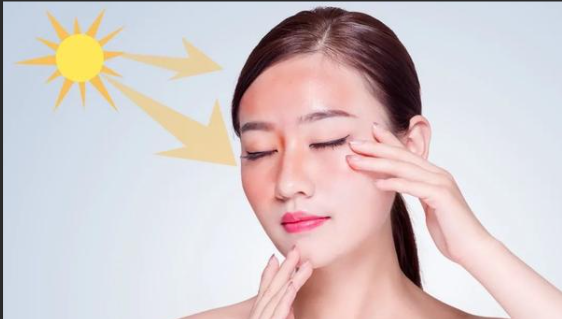
4.How to Use the Insights for Prevention
|
Detected Issue |
Recommended Actions |
Suggested Products |
Follow-Up Interval |
|
Early pigmentation |
Use daily SPF 50+; add brightening serums with niacinamide or arbutin |
Brightening sunscreen, dark spot corrector |
Every 6–8 weeks |
|
UV-induced dehydration |
Increase water intake; apply hydrating serum and emollients |
Hyaluronic acid serum, ceramide moisturizer |
Every 4 weeks |
|
Loss of elasticity/wrinkles |
Apply collagen-supporting skincare; reduce sun exposure peak hours |
Peptide cream, antioxidant SPF |
Every 6–8 weeks |
|
Uneven melanin distribution |
Introduce pigment-regulating skincare; use broad-spectrum sunscreen consistently |
Tone-evening cream, mineral sunscreen |
Every 4–6 weeks |
|
High cumulative UV exposure |
Combine SPF with antioxidant defense; limit prolonged outdoor activity |
SPF + Vitamin C/E serum, anti-photoaging routine |
Every 8 weeks |
Learn more:
https://www.djmimoreme.com/top-benefits-of-using-a-skin-analyzer-in-your-skincare-routine
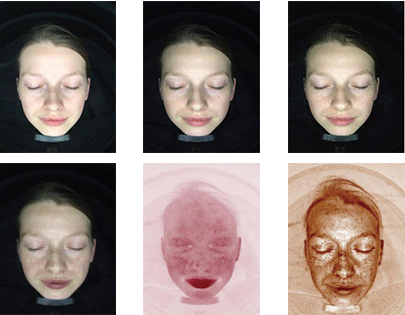
Once sun-related skin changes are detected through analysis, the key is turning those findings into actionable care. Rather than offering generic advice, the data supports targeted decisions for daily skincare and long-term protection.
4.1 Rethink Daily Skin Habits Based on Specific Findings
Different types of sun damage call for different responses. If the analysis shows signs of moisture loss, a lightweight hydrator and barrier-repair cream may be prioritized. If early pigmentation is spotted, formulas with gentle brightening agents can be introduced alongside more diligent UV protection.
4.2 Match Protection to Your Skin’s Real Needs
Choosing sun protection isn’t just about SPF numbers—it’s about matching products to your skin’s current condition. High-risk areas may benefit from mineral-based sunscreens, while antioxidant support from ingredients like vitamin C or ferulic acid can help reduce the impact of environmental stressors detected in the scan.
4.3 Use Follow-Up Scans to Guide and Refine
Skin is always changing. By revisiting analysis every few weeks, you can see what’s working, spot any new areas of concern, and adjust care accordingly. This ongoing feedback loop makes skin management more precise and proactive—not reactive.
Learn more:
https://www.djmimoreme.com/visia-vs-imoreme-why-imoreme-is-the-best-value-skin-analysis-machine
https://www.djmimoreme.com/how-skin-analysis-equipment-enhances-hydrodermabrasion-device-results-in-2025
Conclusion:
In today’s skincare landscape, prevention is just as important as treatment—and technology plays a central role in making that possible. Skin analysis equipment not only detects what the eye cannot see but also translates hidden damage into clear, actionable insights.
Table of Contents
Related information
How can we help you?
Have specific questions or requests? Fill out our inquiry form, and our dedicated team will get back to you promptly. Your inquiries are important to us, and we are committed to providing comprehensive and personalized responses tailored to your needs.


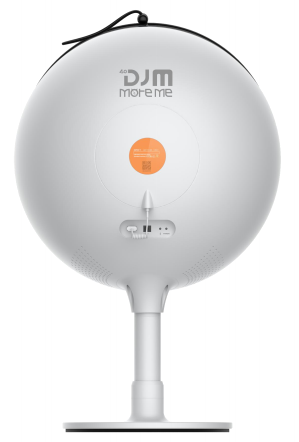
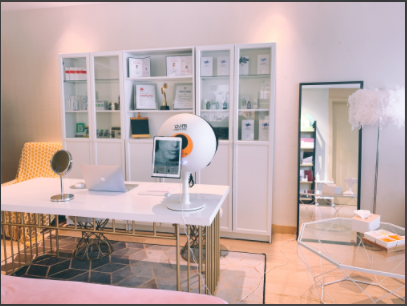
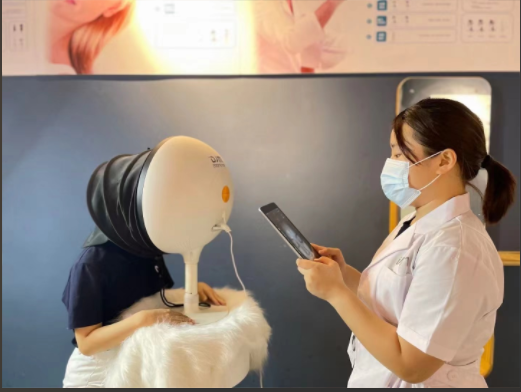
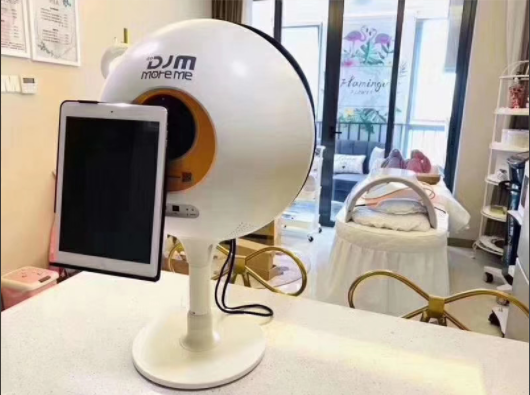
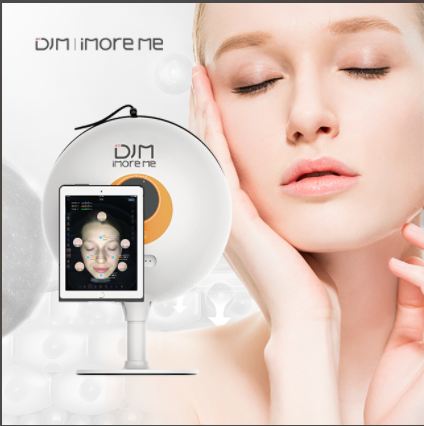
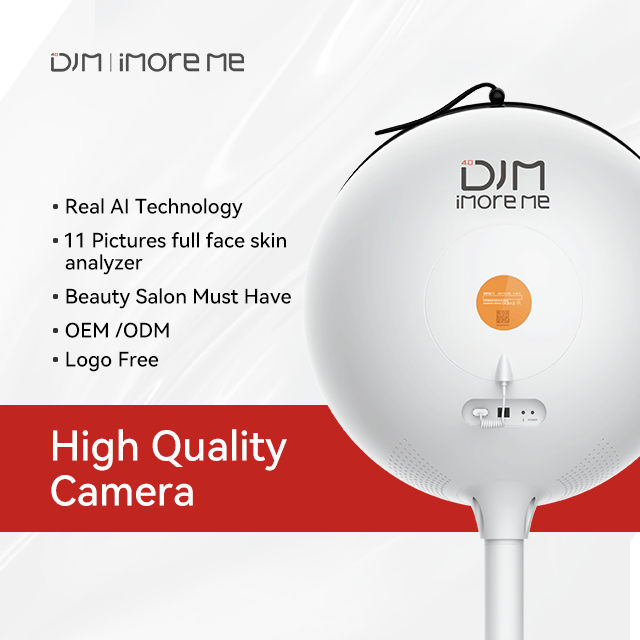
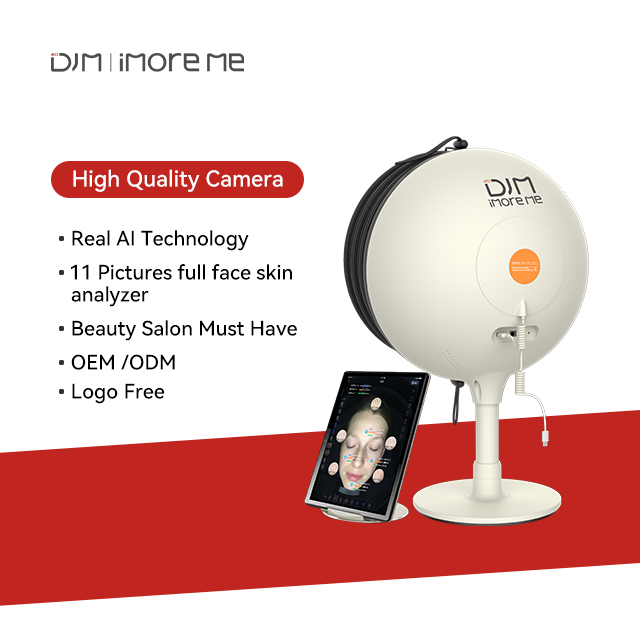
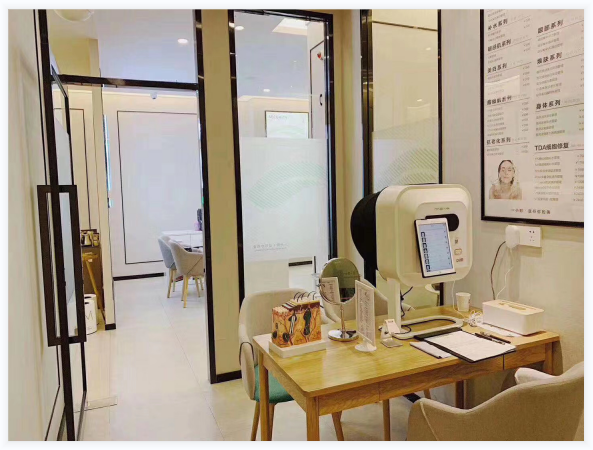


 Reach out to us today!Whether you are preparing to start your own
business in the beauty industry, are ready to upgrade your
equipment, or are just interested in our products,Contact us
today, and let’s explore how we can partner to achieve your goals
and drive your success to new heights!
Reach out to us today!Whether you are preparing to start your own
business in the beauty industry, are ready to upgrade your
equipment, or are just interested in our products,Contact us
today, and let’s explore how we can partner to achieve your goals
and drive your success to new heights!
